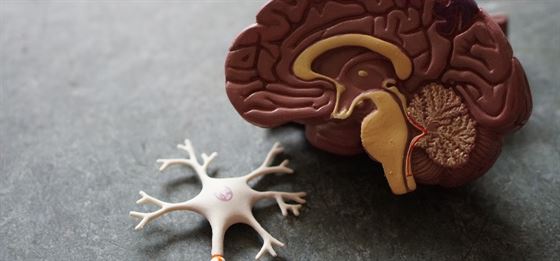
Good Mental Health is Every Person's Human Right

A Mental illness can have devastating effects on individuals, families and communities. Unfortunately, far too many people are denied access to the mental health care services they need due to financial barriers, social stigma and inadequate resources. According to the World Health Organization, one in every eight people or an overwhelming 970 million people globally have a mental disorder. Every person has the right to enjoy a life of dignity and health. Yet, for many people, especially those who are struggling with mental health issues, accessing quality care isn’t always easy. People often think of physical and mental health as two separate things, but this could not be further from the truth. Just like a person needs physical health care, they also need mental health care to live their best life. Let’s explore why this is so important.
How Mental Health and Basic Human Rights are Interlinked
The Office of the United Nations High Commissioner for Human Rights (OHCHR) has declared “the right to health is a fundamental part of our human rights and of our understanding of a life in dignity”. Everyone has an inherent right to access the resources they need to maintain their mental well-being. Without a healthy mind, you are unable to think, feel and act in ways that help you reach your full potential – which goes against the very core principles of human rights.
The Connection Between Physical and Mental Health
Physical and mental health are intricately connected. When you don’t take care of your mental health, it can have a negative effect on your physical health as well. Going further, there is a clear relationship between mental and physical health, especially when it comes to chronic conditions according to research. It has been proven:
- Having poor mental health opens you up to developing more chronic physical conditions.
- People who suffer from mental health conditions are more likely to experience physical problems as well.
- People who suffer from chronic physical conditions are more likely to develop poor mental health.
The Inevitable Impact of Poor Mental Health
For individuals who experience mental health problems, the effects can be life-altering. Untreated mental illness can lead to a host of issues, including social isolation, difficulty managing daily tasks such as work, inability to control emotions and behaviour and an increased risk for suicide. In addition, people who suffer from mental health issues can also experience physical ailments such as headaches, digestive problems and chronic pain.
The importance of mental health care is clear: when people have access to the resources and support they need, it helps them lead healthier, more fulfilling lives. Mental health care can help individuals gain control over their symptoms and lead meaningful, productive lives.
5 Key Benefits of Accessing Professional Mental Health Care
Although there are some things you can do yourself to support your mental wellness, professional help may be necessary for more serious issues such as anxiety or depression. With professional help comes the opportunity to gain insight into your behaviors, thoughts and emotions which will then allow you to make better decisions moving forward in life — ultimately leading you towards greater personal growth and development! Let’s explore five key benefits of accessing professional mental health care.
1. Gaining a Professional Perspective
When you are struggling with difficult emotions, it can be hard to figure out what’s going on and how to manage them. A mental health professional can provide an objective perspective on your challenges and offer insight on how to approach them.
2. Access to Evidence-Based Techniques
Many mental health professionals use evidence-based techniques such as cognitive behavioral therapy (CBT) or dialectical behavior therapy (DBT). These techniques are designed to empower you by teaching you skills for managing difficult emotions, communicating effectively and developing healthy coping strategies for dealing with stress and anxiety.
3. You Learn About Yourself
Talking to a mental health professional allows you to reflect on your thoughts, feelings, behaviors and experiences in a safe space with someone who is non-judgemental and supportive. This process can help you gain clarity around why certain things might be triggering for you or why particular situations may cause distress or lead to unhelpful patterns in your life.
4. Access to Resources
Mental health professionals have access to resources which may not be available elsewhere such as referrals for specialized services or support groups in your area if needed. They are also well-versed in local laws related to mental illness so they can advise you if there are any legal implications associated with certain behaviors or actions that may need attention or resolution as part of your recovery journey.
5. Developing Healthier Habits
Working with a mental health professional gives you the chance to learn new skills and develop healthier habits which will serve you over time – especially during challenging times when it feels like nothing else is working! With regular practice, these habits become second nature.
Mental health care should never be viewed as a privilege; rather, it should be seen as an essential right given its importance in helping us lead happier lives. Taking time every day for self-care practices is beneficial but there are times when seeking professional help makes sense too — especially if you find yourself stuck in a cycle of unhealthy habits or behavior patterns that don’t serve you anymore. Everyone has the right to access quality mental health services so don’t wait any longer — get the help you need today.
Articles
Build your awareness and get inspired with our researched articles on how you can strengthen your well-being
Popular Topics
An OTP has been sent to the email address
provided.
Please check your Inbox and Spam folders.

What Would You Like to Speak with a Specialist About?
Mental Fitness Journey starts Now!
Chearful Connects you with Top-tier Qualified Wellness specialists for the Price of a cup of Coffee!

Next Steps
- A Client Team member will reach out to you to schedule a session with the most suitable specialist.
- You will receive an email with a 10% Discount Code* for your 1st session.
- We invite you to Explore the Platform & Sign Up today! *Upto a maximum of $10 discount on a session purchased




 3198 Read
3198 Read



.jpg)







.png)

.jpg)

.jpg)




.jpg)






































.jpg)


.jpg)
.jpg)





































